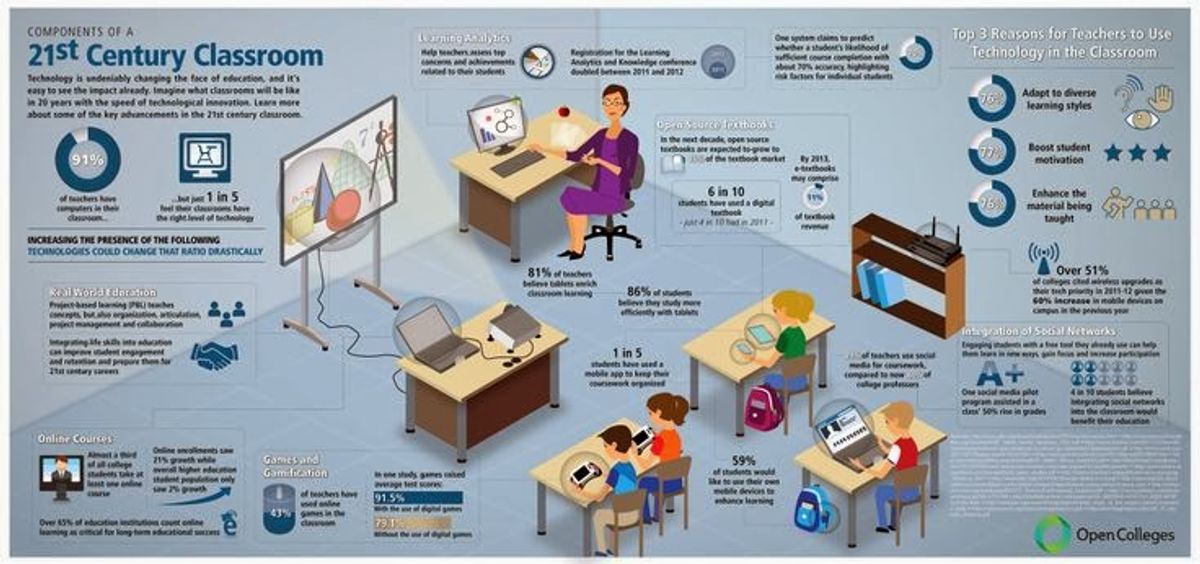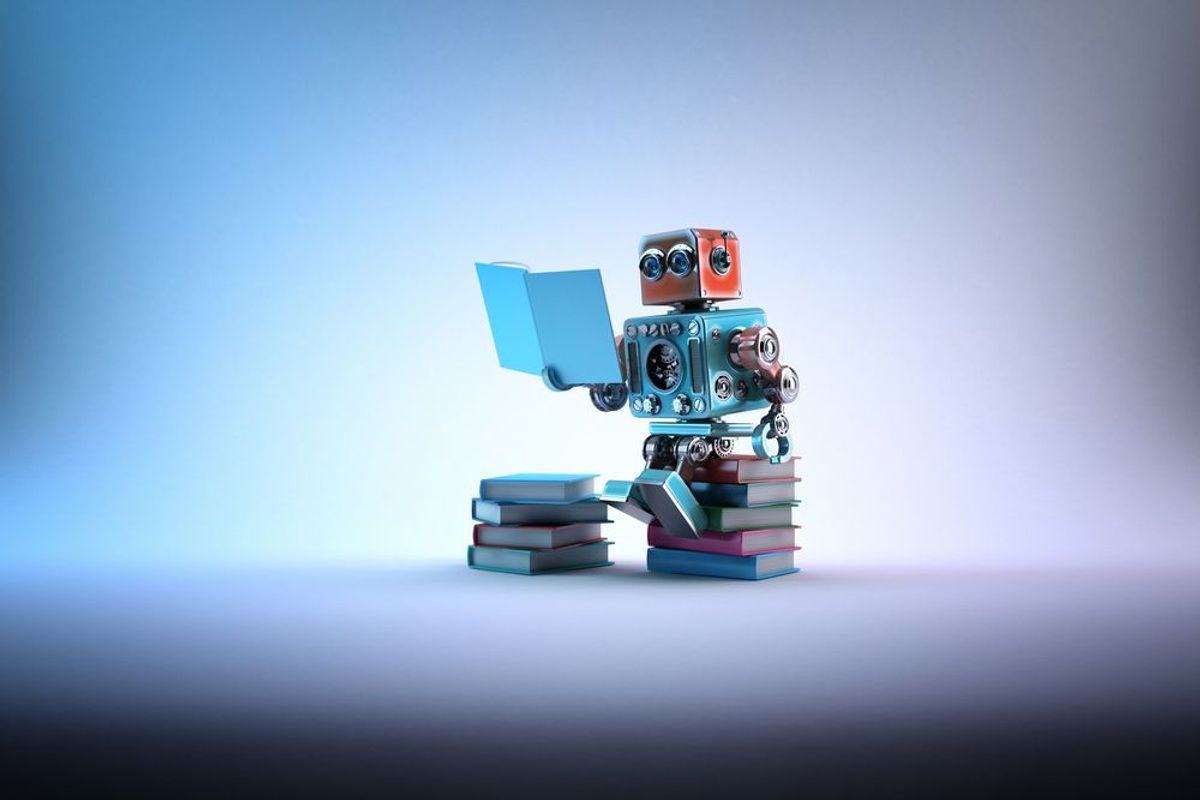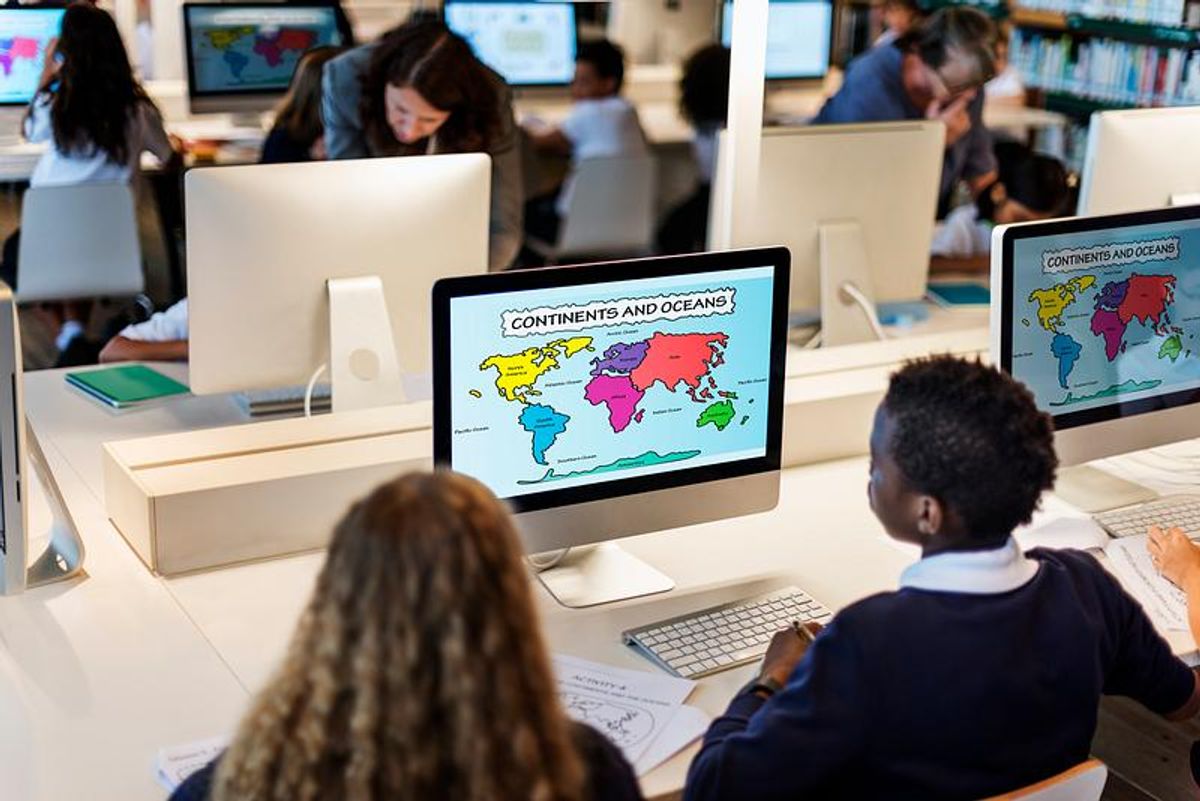The integration of Artificial Intelligence (AI) in online learning is revolutionizing the educational landscape, offering unprecedented opportunities for enhancing teaching methods, personalizing student learning experiences, and supporting educators' professional development. As AI continues to evolve, it is imperative to understand how it can be leveraged to create more effective, engaging, and inclusive online learning environments. This article explores the multifaceted role of AI in online education, shedding light on its potential to transform the way students learn and teachers teach in the digital age.
Key Takeaways
- AI technology is pivotal in creating personalized learning paths and adapting to individual learning styles, providing real-time feedback and continuous assessment.
- Teaching methodologies are being enhanced by AI through innovative strategies, gamification, and fostering creativity via project-based learning.
- Educators' development and classroom management benefit from AI with improved teacher training, AI teaching assistants, and integration best practices.
- AI fosters inclusivity and equity in education by creating diverse learning environments, tailoring special education, and promoting digital literacy.
- Student well-being and social skills are positively impacted by AI, which supports social-emotional learning, mindfulness, and collaborative learning experiences.
The Role of AI in Personalizing Online Learning

Unlocking Student Potential: Personalized Learning Paths with AI Technology
The advent of AI in education has brought about a transformative approach to how students learn. AI-driven personalized learning paths are revolutionizing the educational landscape by tailoring the learning experience to the individual needs of each student. Adaptive learning platforms, powered by AI, meticulously analyze student data to craft a learning journey that is as unique as the learner themselves.
By leveraging AI technology, educators can now provide a more engaging and effective learning environment that adapts in real-time to the progress and preferences of students.
The benefits of personalized learning with AI are manifold. Here's a glimpse into how AI is enhancing the learning experience:
- Revolutionizing Homework Assignments: AI provides personalized tasks that cater to individual learning objectives.
- Empowering Student Voice: AI amplifies student perspectives, allowing for a more inclusive classroom dialogue.
- Fostering Creativity: AI tools inspire student innovation, making the classroom a hub for creative thinking.
- Building Resilient Learners: AI fosters a growth mindset, essential for student development and success.
Adapting to Individual Learning Styles: AI-Driven Customization
The integration of AI into online learning platforms has revolutionized the way educators can cater to individual student needs. AI-driven customization allows for the adaptation of content, pace, and learning strategies to match the unique preferences and abilities of each learner. This personalized approach not only enhances engagement but also optimizes the learning process for better outcomes.
- Content Adaptation: AI analyzes student performance and preferences to tailor the learning material.
- Pace Adjustment: Students can learn at their own speed, with AI suggesting when to accelerate or slow down.
- Strategy Optimization: Different learning strategies are employed based on the student's most effective method of comprehension.
By leveraging AI, educators can create a more dynamic and responsive learning environment that acknowledges the diversity of learning styles and intelligently adjusts to them. This not only supports students in mastering the curriculum but also fosters a sense of confidence and independence in their learning journey.
Continuous Learning Assessment: Real-Time Feedback and Adaptations
The integration of AI in education has revolutionized the way continuous learning assessments are conducted. Real-time feedback is now a cornerstone of the online learning experience, enabling students to immediately understand their strengths and areas for improvement. This instantaneity fosters a more dynamic and responsive learning environment.
- AI-driven systems track student progress and adapt content accordingly.
- Personalized feedback guides learners through complex concepts at their own pace.
- Real-time adjustments to learning paths ensure that each student's unique needs are met.
The goal is not just to assess, but to use assessment as a tool for enhancing learning. AI facilitates this by providing actionable insights that students can use to refine their understanding and educators can use to tailor their instruction.
The benefits of AI in continuous assessment extend beyond personalized learning. They also include the ability to identify trends and predict outcomes, which can inform curriculum development and pedagogical strategies. By leveraging AI, educators are equipped to make data-driven decisions that positively impact student learning outcomes.
AI-Enhanced Teaching Methodologies

Innovative Teaching Strategies for the Digital Age
As educators navigate the digital landscape, innovative teaching strategies are essential for engaging students and enhancing learning outcomes. The integration of technology in the classroom has opened up new avenues for differentiation, allowing teachers to meet the diverse needs of students through personalized learning paths powered by AI.
- The Art of Differentiation: Tailoring instruction to individual student needs.
- Unlocking Student Potential: Leveraging AI for customized learning experiences.
- Building a Collaborative Classroom: Utilizing AI tools to promote peer learning.
Embracing these strategies not only supports academic growth but also fosters a culture of collaboration and mindfulness, preparing students for the interconnected world they will navigate.
Moreover, the role of emotional intelligence and social skills in education cannot be overstated. By nurturing these competencies alongside academic knowledge, educators are shaping well-rounded individuals capable of thriving in a rapidly evolving society.
The Gamification of Learning: AI's Role in Making Education Fun
The integration of AI in gamification transforms the educational experience, making it more engaging and interactive. AI systems can personalize game-based learning activities to suit individual student preferences and learning speeds, ensuring that each learner is both challenged and entertained.
- AI-driven games adapt in real-time to the player's ability, providing a customized learning journey.
- Immediate feedback and rewards keep students motivated and invested in their learning process.
- AI can manage administrative tasks, freeing up time for educators to focus on creative teaching methods.
By leveraging AI in gamification, educators can create a dynamic learning environment that captivates students and fosters a love for learning.
The use of AI in gamification not only makes learning more enjoyable but also supports a variety of educational outcomes. It encourages active participation, enhances retention, and builds critical thinking skills through complex problem-solving scenarios.
Cultivating Creativity in the Classroom: Fostering Innovation Through Project-Based Learning
The integration of artificial intelligence (AI) into project-based learning (PBL) is transforming educational paradigms, enabling students to learn, collaborate, and create in unprecedented ways. AI tools like Project Pals are at the forefront of this revolution, offering dynamic platforms for students to engage in complex projects that nurture creativity and innovation.
By leveraging AI, educators can provide a more tailored learning experience that adapts to the needs of each student. This personalized approach ensures that learners are not only absorbing information but also applying it in meaningful ways. AI's role in project-based learning extends to facilitating collaboration among students, allowing them to work together effectively regardless of physical location.
The use of AI in project-based learning empowers students to take ownership of their education, fostering a sense of autonomy and motivation that is essential for creative exploration.
The benefits of AI in enhancing project-based learning are numerous, including improved student engagement and outcomes. Below is a list of key advantages:
- Enhanced collaboration and communication
- Real-time feedback and progress tracking
- Increased accessibility for diverse learning needs
- Development of critical thinking and problem-solving skills
- Encouragement of a growth mindset and continuous learning
AI in Supporting Educator Development and Classroom Management

AI in Professional Development: Enhancing Teacher Training and Growth
The integration of AI into professional development is revolutionizing the way teachers learn and grow in their careers. AI-powered platforms are providing educators with personalized learning experiences, tailored to their individual teaching styles and professional goals. These platforms offer a range of resources, from interactive modules to real-time coaching, ensuring that professional growth is both accessible and engaging.
With the rapid advancement of AI in education, it's crucial for teachers to stay abreast of the latest tools and methodologies. However, a significant gap exists in the current professional development offerings. More than 7 in 10 teachers have reported a lack of training on utilizing AI in the classroom, highlighting an urgent need for comprehensive AI education programs.
The effective use of AI in the classroom not only enhances the learning experience for students but also empowers teachers to innovate and improve their instructional strategies.
To bridge this gap, educational institutions and districts can implement the following steps:
- Assess the current level of AI knowledge among educators.
- Develop targeted training programs that address specific AI applications in teaching.
- Create a supportive community where teachers can share experiences and best practices.
- Continuously evaluate and update the training content to reflect the evolving digital landscape.
Empowering Teachers: Harnessing the Power of AI Teaching Assistants
The integration of AI teaching assistants into the classroom is transforming the educational landscape. AI teaching assistants are not just a futuristic concept; they are here, enhancing the way educators teach and students learn. They take on a variety of roles, from grading assignments to providing personalized learning recommendations, freeing up valuable time for teachers to focus on more complex and creative educational tasks.
- Grading and Assessment: AI can quickly grade assignments and quizzes, providing immediate feedback to students.
- Lesson Planning: Suggesting innovative lesson ideas based on current educational trends.
- Classroom Management: Assisting with the organization and discipline within the classroom.
- Student Support: Offering tailored support to students, fostering autonomy and independent learning skills.
By leveraging AI teaching assistants, educators can enhance their teaching strategies and develop stronger relationships with their students. This technology empowers teachers to create a more dynamic and interactive learning environment.
The potential of AI teaching assistants extends beyond administrative support; it includes nurturing a collaborative classroom atmosphere and encouraging student autonomy. As AI continues to evolve, its role in education promises to grow, reshaping how teachers manage their classrooms and interact with their students.
Navigating the Digital Classroom: Best Practices for Integrating AI Technology
Integrating AI technology into the digital classroom requires a strategic approach to ensure that it enhances the learning experience without overwhelming students or educators. Best practices for AI integration involve a blend of pedagogical knowledge and technical acumen.
- Start by identifying clear educational objectives that AI can support.
- Select AI tools that align with these goals and are age-appropriate.
- Provide training for educators to effectively use AI in their teaching.
- Introduce AI to students with transparency about its capabilities and limitations.
- Encourage critical thinking by discussing AI's role and impact in society.
It is crucial to foster an environment where both students and teachers are comfortable with technology, promoting a culture of digital literacy and continuous learning.
Finally, it is important to continuously evaluate the effectiveness of AI tools and adapt strategies accordingly. This iterative process ensures that AI remains a beneficial component of the educational landscape, rather than a novelty or distraction.
Fostering Inclusivity and Equity in Education through AI

Creating Inclusive Learning Environments: AI Tools for Diversity and Equity
In the pursuit of educational equity, AI tools are becoming indispensable in creating inclusive learning environments. These tools offer the ability to tailor educational experiences to meet the diverse needs of students, ensuring that everyone has access to the resources and support they need to succeed.
AI technology is particularly adept at identifying and addressing learning gaps, which can be crucial for students from varied backgrounds. By analyzing data on student performance, AI can pinpoint areas where individual students may need additional help and provide customized resources or recommendations.
One of the key benefits of AI in education is its scalability. Whether in a small classroom or a large online course, AI can assist educators in managing a wide range of learning styles and abilities. For example:
- AI can adapt course content to suit different learning paces.
- It can offer language support for non-native speakers.
- AI tools can provide alternative formats for students with disabilities.
The goal is not just to integrate technology into the classroom, but to leverage it in a way that promotes diversity and inclusion at every level of the educational experience.
Platforms like Skalo exemplify a proactive approach to managing learning diversity and inclusion in the classroom. By empowering educators with the right tools, we can ensure that every student has the opportunity to reach their full potential.
The Impact of AI on Special Education: Tailoring Learning for Every Student
Artificial intelligence is revolutionizing the field of special education by providing tailored learning experiences that cater to the unique needs of each student. AI-driven tools are capable of adapting educational content to match the learning pace, style, and requirements of individuals with diverse needs, ensuring that no student is left behind.
- AI-powered assessments can identify specific learning challenges.
- Customized learning modules allow for the accommodation of various disabilities.
- Real-time feedback helps educators adjust teaching strategies promptly.
By leveraging AI, educators can create a more inclusive and supportive learning environment that fosters student engagement and success.
Research and Development Partnerships are crucial in advancing these AI tools, ensuring they are effective and accessible. It is undeniable that artificial intelligence is going to impact the work of teaching and learning in special education, transforming it into a more equitable space for all learners.
Promoting Digital Literacy: Preparing Students for a Connected World
In the era of globalization and rapid technological advancement, digital literacy has become a cornerstone of education. It is essential for students to not only consume digital content but also to understand, analyze, and create it responsibly. Digital Promise's AI Literacy framework underscores the importance of comprehending and evaluating AI, as these skills are vital for making informed decisions about the use of AI in various contexts.
- Understanding the basics of digital safety and privacy
- Recognizing and evaluating the credibility of online information
- Utilizing digital tools to create and share content ethically
- Developing critical thinking skills to navigate the digital landscape
By integrating AI tools into the curriculum, educators can enhance media literacy education, enabling students to sift through the vast sea of digital content with discernment. This approach not only promotes critical thinking but also prepares students to become responsible digital citizens in a connected world.
As technology continues to evolve, so must our approaches to teaching and learning. Embracing AI tools in media literacy education empowers students to confidently face the complexities of the digital age. The ultimate goal is to equip the next generation with the necessary skills to thrive in an information-rich environment, where AI plays an increasingly significant role.
AI's Impact on Student Well-Being and Social Skills

Promoting Social-Emotional Learning: Using AI to Support Student Well-Being
In the realm of online education, AI's role in fostering social-emotional learning is becoming increasingly significant. By integrating AI tools, educators can offer more personalized support to students, helping them develop crucial emotional intelligence skills. AI systems can analyze student interactions and provide insights into their emotional states, enabling a more empathetic approach to teaching.
- AI-driven analytics to understand student emotions
- Personalized feedback to nurture emotional growth
- Real-time interventions for student well-being
AI's capacity to enhance social-emotional learning lies not only in data analysis but also in its ability to create a supportive learning environment. Integrated AI can capture and synthesize student reflection on their own learning to identify gaps and strengths which inform both student and teacher about the emotional and academic journey.
The collaboration between emotional intelligence and AI can lead to a more nuanced understanding of student needs. This partnership paves the way for tailored interventions that can help lessen the stress and anxiety associated with learning, making the educational experience more enjoyable and effective.
Mindfulness in Education: Cultivating Focus and Well-Being with AI Support
In the realm of education, AI-driven tools are revolutionizing the way mindfulness is integrated into the learning experience. These applications offer personalized support, adapting to the unique needs of each student to enhance focus and emotional regulation. With 24/7 accessibility, students can engage in mindfulness practices at their convenience, fostering a sense of well-being that transcends the classroom.
The incorporation of AI into mindfulness education allows for a nuanced approach to student mental health. By leveraging data and machine learning, these tools can provide real-time insights into students' emotional states, offering interventions that are both timely and relevant.
The benefits of AI in promoting mindfulness and well-being are multifaceted. Here is a list of key advantages:
- Personalized mindfulness exercises tailored to individual student needs
- Continuous monitoring and feedback to track progress
- Enhanced emotional intelligence through interactive and adaptive learning scenarios
By embracing AI for mental health, educators are not only addressing the immediate needs of their students but also equipping them with the skills necessary for long-term emotional resilience.
Building a Collaborative Classroom: AI and the Power of Group Learning
The integration of AI into group learning environments has revolutionized the way students collaborate and interact. AI-enhanced collaborative learning tools are designed to facilitate communication, manage group tasks, and provide a platform for shared resources. These tools not only support the logistics of group work but also encourage the development of essential teamwork skills.
By analyzing group dynamics and participation, AI can offer insights that lead to more effective collaboration. For instance, AI can identify when a student is not participating actively and suggest strategies to involve them more in the group process. This ensures that all students are engaged and contributing to the collective learning experience.
- Empowering Educators: Harnessing AI Tools for Personalized Learning
- Cultivating Inclusive Classrooms: AI Tools for Differentiated Instruction
- Fostering Collaboration: AI Tools for Team Teaching and Co-Planning
The goal of AI in group learning is not to replace the human element but to enhance it, ensuring that each student's voice is heard and valued within the collaborative process.
Conclusion
As we navigate the ever-evolving digital landscape, the integration of AI in online learning has proven to be a transformative force. From enhancing student assessment with AI marking assistants to fostering social-emotional learning, AI tools are reshaping the educational experience. They promote student autonomy, nurture tech-savvy learners, and support educators in creating more inclusive and engaging learning environments. The future of teaching is being shaped by AI's ability to adapt curriculum design, personalize learning paths, and prepare students for AI-powered careers. As we continue to explore the potential of AI in education, it is clear that these technologies hold the key to unlocking innovative teaching strategies, cultivating critical thinking, and empowering both students and educators to thrive in a connected world. The journey through the digital landscape is ongoing, but with AI as our compass, the path to enhanced online learning experiences is brightly illuminated.
Frequently Asked Questions
How does AI personalize online learning experiences for students?
AI technology analyzes individual student data to create personalized learning paths, adapting to their unique learning styles and providing real-time feedback to enhance their educational journey.
What role does AI play in enhancing teaching methodologies?
AI introduces innovative teaching strategies, such as gamification and project-based learning, to make education more engaging and to foster creativity and innovation in the classroom.
In what ways can AI support educator development and classroom management?
AI can offer advanced professional development by analyzing teaching patterns, providing AI-powered teaching assistants to support classroom management, and offering best practices for integrating AI technology effectively.
How does AI contribute to inclusivity and equity in education?
AI tools can help create inclusive learning environments by addressing diverse educational needs, customizing learning for students with disabilities, and promoting digital literacy across various demographics.
Can AI impact student well-being and social skills development?
Yes, AI supports social-emotional learning by providing tools that help students develop well-being, mindfulness, and collaborative skills necessary for effective group learning.
What is the future of AI in online teaching and educator training?
AI is expected to continue shaping the future of education by enhancing online teaching strategies, offering new avenues for teacher training, and preparing educators to integrate AI tools for a more dynamic learning environment.



